Search Results
Showing results 1 to 15 of 15

Heavy or Light
Source Institutions
In this activity, learners explore a scale by comparing objects, which look similar but have different weights. Learners predict and then measure the weights of various objects using a scale.

Make a Human Scale Ladder
Source Institutions
In this quick activity about size and scale (on page 2 of the PDF under What's Nano?
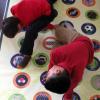
Exploring Size: StretchAbility
Source Institutions
In this game, learners explore the different sizes of things in the world. In this Twister-like game, learners must place a hand or foot on a circle of the right scale - macro, micro, or nano.
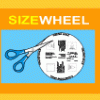
Size Wheel
Source Institutions
In this fun sticker activity, learners will create a size wheel with images of objects of different size, from macroscopic scale (like an ant) to nanoscale (like DNA).
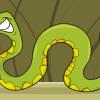
Animals are Amazing!
Source Institutions
In this activity, learners use measurement concepts to make models of what their body parts might look like if they were a snake or a chameleon.
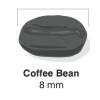
Coffee to Carbon
Source Institutions
In this activity, learners place cards featuring biological structures in order by their relative size from largest to smallest.
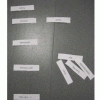
Life Size: Line 'em up!
Source Institutions
In this activity on page 1 of the PDF, learners compare the relative sizes of biological objects (like DNA and bacteria) that can't be seen by the naked eye.

Horton Senses Something Small
Source Institutions
In this story time program, young learners listen to the Dr.
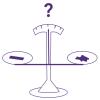
Chew that Gum
Source Institutions
In this quick activity (page 1 of PDF under SciGirls Activity: Exercise and Memory), learners will investigate what happens to bubble gum when it is chewed for 5-10 minutes.
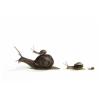
Small Snails, Enormous Elephants
Source Institutions
This activity (located on page 2 of PDF) introduces learners to the real size of animals using nonstandard measurement.
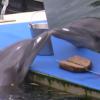
Animal Reflection Response
Source Institutions
In this activity (page 1 of the PDF under SciGirls Activity: Horse Ears), learners observe how an animal responds to its own reflection.

Hot Stuff!: Investigation #4
Learners test two jars containing soil, one covered and one open, for changes in temperature. After placing the jars in the Sun, learners discover that the covered jar cools down more slowly.

Hot Stuff!: Investigation #2
Learners test two jars containing hot water, one covered with plastic and one open, for changes in temperature.

Hot Stuff!: Investigation #3
Learners test two jars of ice water, one covered and one open, for changes in temperature. After placing the jars in the sun, learners discover that the covered jar cools down more slowly.

Hot Stuff!: Investigation #1
Learners test two jars, one containing plain air and one containing carbon dioxide gas, to see their reactions to temperature changes.
